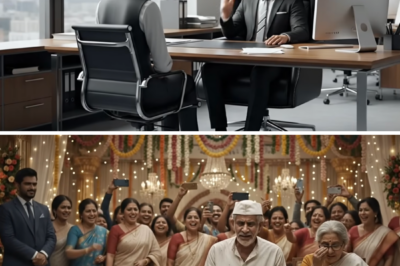Youth, Politics, and Identity: Shashi Tharoor Addresses Students’ Big Questions on Leadership, Unity, and Indian Identity
In a candid session with students from schools across India, prominent Congress leader Shashi Tharoor responded to pressing questions about politics, student leadership, national unity, and preserving Indian identity.
Inspiring Leadership Without Power
When asked by a student how young people can become leaders and enact change without holding official positions, Tharoor emphasized that true leadership is not limited to those in power. “You can lead by setting an example in whatever you do,” he said. “Leadership consists of inspiring those around you, being good at what you do, and striving to be the best version of yourself.”

Tharoor encouraged students to recognize their strengths and weaknesses, overcome their limitations, and cultivate unique talents and human qualities such as empathy and compassion. “Sometimes your greatest strength might be simply lending a helping hand or being someone others can rely on. The human qualities you have are also qualities of leadership,” Tharoor noted.
Bipartisanship and National Security in a Polarized Environment
Addressing the rising polarization in Indian politics, another student asked how Parliament and civil society can institutionalize bipartisanship, especially regarding national security. Tharoor admitted the challenge, explaining that democracy inevitably involves political competition and disagreement. However, he stressed, “The nation must always come first. Parties are a means of making the nation better.”
He called for unity across all political parties in times of crisis, urging politicians and citizens alike to put aside differences when the country’s security and well-being are at stake. “There must be issues where all parties unite. India’s security and prosperity must be above partisan interests,” Tharoor asserted, quoting, “Who lives if India dies?” to drive home his point.
Balancing Cultural Diversity and Global Standards in Education
A third student posed the question of how India can safeguard its cultural and linguistic diversity in education while also aligning with global educational benchmarks. Tharoor responded by acknowledging the unique position India holds: “English is a global language and gives us an advantage. We must value and retain English education because it opens doors internationally and provides access to vast knowledge.”
However, Tharoor was equally clear about the importance of Indian languages. Citing research that children learn best in their mother tongue, he advocated for early education in native languages alongside the early introduction of English as a second language. “Let’s not lose sight of our own country’s history, heritage, and civilization while building on the advantages English offers,” he said.
A Call to Future Leaders
Concluding the session, Tharoor left students with a message of both pride and responsibility. By fostering self-awareness, striving for personal excellence, embracing India’s rich cultural legacy, and putting national interest above partisan politics, the next generation can lead change both within their communities and on the national stage.
News
The Enduring Love of Parag Tyagi: Actor Gets Wife Shefali Jariwala’s Face Tattooed on His Chest After Her Passing
The Enduring Love of Parag Tyagi: Actor Gets Wife Shefali Jariwala’s Face Tattooed on His Chest After Her Passing It…
था कि यही आदमी कभी जिले का डीएम था—आदित्य प्रताप सिंह।
शहर का डीएम और पानी पूरी वाला: इंसाफ की मिसाल सुबह का वक्त था। शहर की हल्की धूप में सड़क…
Unexpected Twist in Nimisha Priya Case in Yemen: Activist Accused of Financial Irregularities
Unexpected Twist in Nimisha Priya Case in Yemen: Activist Accused of Financial Irregularities Welcome to the digital platform of News…
मुंबई – सपनों और विषमताओं का संगम
ट्रैफिक सिग्नल की मुलाकात – कोमल और आर के चौहान की कहानी क्या होता है जब नियती दो ऐसे इंसानों…
औकात कपड़ों से नहीं, संस्कारों से बनती है
औकात कपड़ों से नहीं, संस्कारों से बनती है मुंबई की शाम सिंदूरी रोशनी में नहाई हुई थी। कांच और स्टील…
मां बाप को कंपनी से धक्के देकर बाहर फेंक दिया ! जब बेटे को पता चला। उसके बाद जो हुआ ?
औकात कपड़ों से नहीं, संस्कारों से बनती है मुंबई की शाम सिंदूरी रोशनी में नहाई हुई थी। कांच और स्टील…
End of content
No more pages to load







